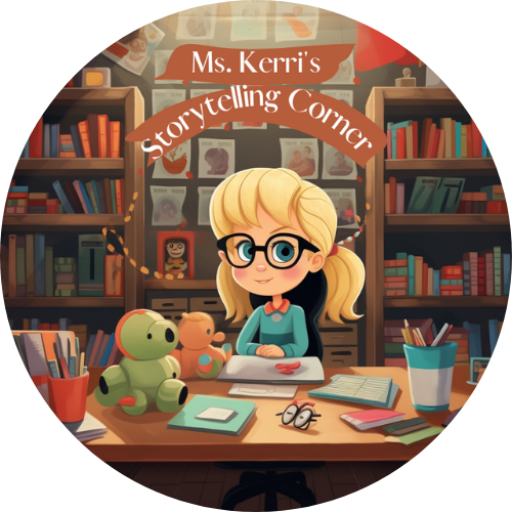Word Power Play: Unlocking the Secrets of Spelling and Vocabulary Through Engaging Puzzles and Games for Kids
Introduction
Learning spelling and vocabulary skills is crucial for kids as it forms the foundation of effective communication. A robust and diverse vocabulary empowers children to express their thoughts, ideas, and emotions eloquently, while strong spelling skills ensure that their written communication is accurate and coherent.
As children progress in their education, these language skills become increasingly essential in all areas of study. However, teaching these concepts can often be challenging and tedious for both parents and teachers.
The Power of Words: Importance of spelling and vocabulary skills for kids
Words have an incredible power to shape our world. By developing spelling proficiency, children gain a command over written language that opens up endless opportunities for self-expression.
Accurate spelling not only ensures that their written work is easily comprehensible but also boosts their confidence in sharing their ideas effectively. Moreover, building a robust vocabulary equips children with the tools to articulate themselves more precisely, allowing them to navigate complex subjects with ease.
Unlocking Fun Learning: Benefits of using puzzles and games
Puzzles and games are wonderful tools for engaging young minds in the learning process. They offer a refreshing break from traditional teaching methods by infusing excitement and interactivity into education. When it comes to learning spelling and expanding vocabulary, puzzles and games provide an enjoyable platform that captivates children’s attention while reinforcing important concepts.
Not only do puzzles and games make learning more fun, but they also offer numerous cognitive benefits. They enhance critical thinking skills as kids strategize solutions or search for specific words within a jumble of letters.
Puzzles such as crosswords or word searches encourage active engagement with words, helping children retain information more effectively than passive memorization techniques alone. Additionally, these activities promote problem-solving abilities as kids decipher clues or analyze patterns.
By incorporating puzzles and games into the learning process, parents and educators can foster a positive attitude towards spelling and vocabulary. When children perceive these subjects as enjoyable pursuits rather than arduous tasks, they become more motivated to actively participate and invest effort in their linguistic development.
Crossword Puzzles: Enhancing Spelling and Vocabulary Skills
Overview of crossword puzzles as a classic word game
Crossword puzzles have been a beloved form of entertainment and brain exercise for decades. They consist of a grid, usually square or rectangular, divided into white and black squares.
Each white square contains a letter, forming words both across and down the grid. Clues are provided to guide players in filling in the correct words.
The challenge lies in deciphering the clues and finding the precise word that fits within the given framework. Crossword puzzles are commonly found in newspapers, magazines, puzzle books, and online platforms – easily accessible for kids to enjoy their benefits.
How crossword puzzles enhance spelling and vocabulary skills
Working on crossword puzzles can do wonders for improving kids’ spelling and vocabulary prowess. By deciphering clues that require knowledge of specific words, children expand their vocabulary as they encounter new terms or reinforce existing ones.
Moreover, filling in letters correctly within the puzzle grid prompts them to focus on proper spelling. As they repeatedly engage with crosswords, kids become more adept at recognizing patterns, understanding synonyms and antonyms, learning about different word forms (e.g., plurals), all while having fun immersing themselves in language-rich challenges.
Click HERE to unlock the magic of read alouds!
Tips for creating age-appropriate crossword puzzles
When creating age-appropriate crossword puzzles for kids, it’s crucial to consider their developmental stage and linguistic abilities. For younger children who are just starting out with spelling and vocabulary building, opt for smaller grids with simpler words to ensure success and maintain interest. Use clues that align with their knowledge base – familiar objects or concepts they encounter daily – so they can readily connect them to the corresponding words.
As kids progress, gradually increase the complexity of words and the size of grids to offer more challenges. Remember to provide clear and concise clues while avoiding overly complicated language, ensuring that the puzzles stay engaging and enjoyable for their age group.
Word Search Games

The Quest for Hidden Words
Word search games are a perennial favorite among kids, and for good reason. These puzzles combine the thrill of a treasure hunt with the joy of discovering words.
Just imagine the excitement on their faces as they search for hidden words in a sea of letters! Word search games have gained popularity among children due to their interactive nature and the sense of accomplishment they provide.
A Spelling Voyage
Apart from being incredibly fun, word search games offer numerous benefits for improving spelling and vocabulary skills. When kids engage in these puzzles, they are actively scanning letters to identify specific words. This process helps them become familiar with word patterns, letter combinations, and spelling rules.
As they repeatedly encounter new words in different contexts, their vocabulary expands organically. Additionally, solving word searches enhances visual perception and attention to detail.
Unleashing Creativity
To make word searches even more engaging, there are several creative variations you can explore. One idea is to create themed word searches based on topics that interest your child, such as animals or sports. You could also incorporate educational elements by including definitions or clues alongside the word list.
For an added challenge, try making diagonal or backwards words in the puzzle grid. Another exciting option is to design collaborative word searches where multiple players work together to solve a larger puzzle.
By introducing these creative variations into word search games, you can keep your child’s interest alive while fostering their spelling and vocabulary growth. So why not embark on this spelling voyage together and discover the hidden treasures within each puzzle?
Scrabble Junior
A Fun Word-Building Game for Kids
Scrabble Junior is not just an ordinary word game; it is a captivating and interactive experience designed specifically for young learners. With its colorful tiles and engaging gameplay, Scrabble Junior instantly captures the attention of children, making learning spelling and vocabulary an enjoyable endeavor. The game’s vibrant board and cute character tokens create a playful atmosphere that encourages kids to dive into the world of words.
Developing Spelling and Vocabulary Abilities in Children
Scrabble Junior serves as an excellent tool for developing spelling and vocabulary skills in children. As kids arrange letter tiles to form words on the game board, they get hands-on practice with spelling various words correctly.
This constant repetition aids in reinforcing correct spelling patterns, improving their accuracy over time. Additionally, since Scrabble Junior offers a wide range of difficulty levels, children can gradually expand their vocabulary by coming across new words during gameplay.
Strategies to Help Kids Excel at Scrabble Junior
To help your little ones excel at Scrabble Junior and maximize their learning potential, here are a few strategies you can implement: 1. Start with simpler words: Encourage beginners to focus on shorter words before moving on to longer ones.
This helps build confidence while enhancing their grasp of basic vocabulary. 2. Utilize high-scoring letters: Teach kids about high-value letters like ‘Q,’ ‘Z,’ or ‘X’ that can earn bonus points when used strategically.
Show them how these letters can be combined with other common letters to form impressive words. 3. Encourage creativity: While it’s important to follow traditional rules, don’t be afraid to let children experiment with word formations that might not exist in standard dictionaries (as long as they make logical sense).
This promotes creative thinking and expands their linguistic capabilities. 4. Practice word building: Set aside dedicated practice sessions where kids can focus solely on building words using the Scrabble tiles.
This activity will strengthen their vocabulary skills and improve their ability to recognize word patterns. By incorporating these strategies, Scrabble Junior becomes not only a fun game but also an effective educational tool for children to enhance their spelling and vocabulary abilities.
The Classic Hangman Game: A Word-Guessing Adventure

Hangman, a beloved classic, has been played by kids and adults alike for generations. The game involves guessing letters to uncover a secret word, with each incorrect guess leading to the drawing of a stick figure being hanged. While it may sound morbid, hangman is actually a fantastic tool for improving spelling skills in kids.
Enhancing Spelling Skills Through Letter Guessing
Hangman actively engages children’s minds as they must think critically and consider various letter possibilities. By guessing letters one at a time, children develop their spelling skills by analyzing the context of the word and making educated predictions.
Each correct guess allows them to fill in the blanks, reinforcing their understanding of letter placement within words. Moreover, hangman encourages kids to broaden their vocabulary as they encounter new words during gameplay.
They grasp these words not only through their guesses but also through the clues provided by incorrect guesses made previously. This process sparks curiosity and motivates them to explore new words independently.
Tips for Adapting Hangman Based on Difficulty Level
To make hangman both challenging and enjoyable for kids of different ages and skill levels, it’s essential to adapt the game accordingly:
- Varying Word Length: for younger children or beginners, start with shorter words or even three-letter words so that they can quickly grasp the concept and experience success without becoming frustrated.
- Hints: If a child struggles with certain words or specific letters within those words, provide helpful hints or clues related to its meaning or usage. This will not only assist them in finding the correct answer but also deepen their understanding of vocabulary.
- Increasing Complexity: As children progress, gradually introduce longer words and less common letters. This will challenge their spelling skills further and encourage them to expand their vocabulary.
- Themed Hangman: To add an extra layer of engagement, try creating themed hangman games based on specific topics or subjects that interest the child. For example, if they enjoy animals, use animal-themed words to make the game more captivating.
Incorporating these tips will ensure that hangman remains an educational and enjoyable experience for kids as they continue to build their spelling skills while having fun with this timeless game.
Spelling Bee Competition
An Interactive Learning Experience
Spelling bee competitions have long been recognized as an engaging and interactive way for kids to enhance their spelling and vocabulary skills. These events create a lively atmosphere where children can showcase their knowledge while also learning from their peers.
Unlike solitary study sessions, spelling bees offer a unique opportunity for kids to witness the power of words in action. They become part of a community that appreciates the beauty and intricacy of language, fostering a love for words that extends beyond the competition itself.
Benefits of Participating in Spelling Bees
Participating in spelling bees provides numerous benefits when it comes to vocabulary expansion. Firstly, children are exposed to an extensive range of words they might not encounter in their usual academic curriculum.
The preparation process often involves studying word lists that cover various topics, allowing participants to explore new domains such as science, literature, or history. This exposure not only enriches their vocabulary but also broadens their knowledge base.
Furthermore, spelling bees foster critical thinking skills. Participants learn how to analyze word patterns, origins, and etymologies to decipher unfamiliar terms accurately.
This analytical approach hones problem-solving abilities and encourages a deeper understanding of language constructs. Spelling bees also promote self-confidence and public speaking skills.
Standing on stage and correctly spelling challenging words under pressure requires bravery and composure. Through repeated practice and exposure to different audiences, children develop resilience and gain confidence in expressing themselves verbally.
Preparation Tips to Excel in a Spelling Bee

To excel in a spelling bee competition, preparation is key! Here are some practical tips:
1. Build Strong Vocabulary: Encourage active reading habits by providing access to books across different genres suited for your child’s age group. 2. Study Word Lists: Obtain word lists or study materials from reliable sources, such as reputable spelling bee competitions or educational websites.
Divide the lists into manageable chunks and practice them regularly. 3. Utilize Interactive Resources: Explore online resources, smartphone apps, or flashcard systems specifically designed to aid spelling bee preparation.
These tools often offer pronunciation guides and definitions to enhance understanding. 4. Focus on Pronunciation: Ensure your child understands the phonetics of words.
Practice correct pronunciation to eliminate any uncertainties during the competition. 5. Mock Spelling Bee Sessions: Organize mock spelling bees at home or with a group of friends to simulate the atmosphere of a real competition.
This helps build confidence and familiarizes kids with the format and rules. Remember, participating in a spelling bee is about more than just winning; it’s an opportunity for personal growth, expanding linguistic skills, and fostering a lifelong love for words.
Bananagrams: A Fast-Paced Word-Building Adventure
When it comes to word games that are both fun and educational, Bananagrams takes the crown. This fast-paced, addictive game is perfect for kids who love a challenge.
The game consists of letter tiles that players use to create a grid of intersecting words. Unlike traditional board games, Bananagrams doesn’t have a set playing board or require turn-taking, making it perfect for energetic kids who prefer a more dynamic gameplay experience.
Improving Spelling and Vocabulary Skills One Tile at a Time
Bananagrams is not just about having fun; it’s also an excellent tool for enhancing spelling and vocabulary skills in children. As kids race against the clock, they have to think on their feet and come up with words using the available letters.
This process encourages them to stretch their vocabulary and search for unique word combinations they might not have considered before. Additionally, by arranging letters into interconnected words, kids develop a deeper understanding of spelling patterns, phonetics, and word structure.
Challenging Variations to Keep Kids Engaged
To keep the excitement alive during multiple rounds of Bananagrams, there are various creative variations you can introduce. One option is “Banana Split,” where players start with half the usual number of tiles and try to build connected words as quickly as possible. Another variation is “Peel-a-Peel,” where each player must swap one of their tiles with an opponent once every minute or so.
This adds an extra layer of strategy as players need to adapt their word-building plans on the fly. By incorporating these thrilling variations into your Bananagrams sessions, you’ll ensure that kids remain engaged while sharpening their spelling and vocabulary skills.
Bananagrams is more than just entertainment; it’s an opportunity for kids to have a blast while expanding their word knowledge. With its fast-paced gameplay and flexibility, Bananagrams is a surefire way to supercharge spelling and vocabulary skills in young learners.
Memory Match Games

The Power of Memory Match Games
Memory match games are not only entertaining but also offer numerous cognitive benefits for children. These games involve flipping over cards to find matching pairs, challenging kids to exercise their memory and concentration skills.
By engaging in these activities, children develop their ability to focus, enhance visual perception, and strengthen their working memory capacities. The repetitive nature of memory match games also helps improve attention span and cognitive flexibility.
Reinforcing Spelling and Vocabulary with Memory Match Games
Memory match games can be an effective tool for reinforcing spelling and vocabulary skills in children. One way to achieve this is by incorporating word pairs into the game. Each card pair can consist of a word and its corresponding definition or a word with a picture representing its meaning.
As children play the game and flip over cards, they are constantly exposed to words, engaging in active retrieval practice that reinforces their spelling and vocabulary retention. This repetitive exposure to words in a fun context helps solidify their understanding and improves recall.
Customizing Memory Match Games
To make memory match games even more engaging and personalized for kids, there are various ways to customize them. One option is to create themed sets based on specific topics or subjects that align with the child’s interests or curriculum focus.
For example, if the child enjoys animals, one could use pictures of different animals on each card pair instead of words alone. Another customization idea is to vary the difficulty level by increasing the number of cards or introducing more complex word pairs as children progress in their spelling abilities.
Conclusion
Incorporating puzzles and games into learning can make language development an enjoyable experience for kids while effectively boosting their spelling and vocabulary skills. Crossword puzzles challenge them intellectually; word search games stimulate visual perception; Scrabble Junior brings out their competitive spirit and word-building abilities. Hangman offers a thrilling guessing game, while spelling bee competitions provide an interactive platform to showcase their linguistic prowess.
Additionally, memory match games offer cognitive benefits and reinforce spelling and vocabulary retention. By embracing these engaging activities, children can learn with enthusiasm and broaden their linguistic horizons.

Ms. Kerri’s Corner provides a exciting virtual space for preschool learning. Through a variety of engaging activities, she exposes young minds to early math, literacy, science and social-emotional skills in a developmentally appropriate way. Centers for blocks, art, books and music allow children to explore hands-on learning at their own pace. Guided lessons subtly introduce number sense, letter sounds and narrative thinking. Careful observation gives insight into each child’s progress across domains. Viewers are also invited to participate, reinforcing that their ideas are valued. By making learning fun yet purposeful, Ms. Kerri lays the groundwork for future academic success while fostering creativity and imagination. Her program offers preschoolers valuable screen-based learning experiences.




